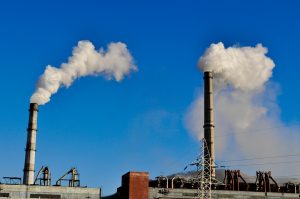 The biggest irony of the Trump Administration’s attack on environmental safeguards is that it will undermine a central promise of his candidacy: supporting boots on the ground, American jobs in growth sectors. One prime example? The emerging service industry that puts people to work finding and fixing harmful natural gas leaks.
The biggest irony of the Trump Administration’s attack on environmental safeguards is that it will undermine a central promise of his candidacy: supporting boots on the ground, American jobs in growth sectors. One prime example? The emerging service industry that puts people to work finding and fixing harmful natural gas leaks.
American workers in the methane mitigation industry keep the product, methane (the main ingredient in natural gas), in the pipes and out of the sky. That’s a win for workers, who receive technology training, competitive wages, and opportunities for upward mobility. It’s a win for surrounding communities, as methane emission reductions also help keep smog-forming pollutants out of the air they breathe. It’s a win for oil and gas operators, which make operations more efficient and improve safety. And it’s a win for the climate, since methane is 84 times more potent in the near term than carbon dioxide.
In other words, if winning were more than a campaign slogan, supporting America’s methane mitigation industry would be an obvious opportunity to seize. Unfortunately, President Trump’s anti-jobs approach to undermining methane safeguards does just the opposite. Read More











